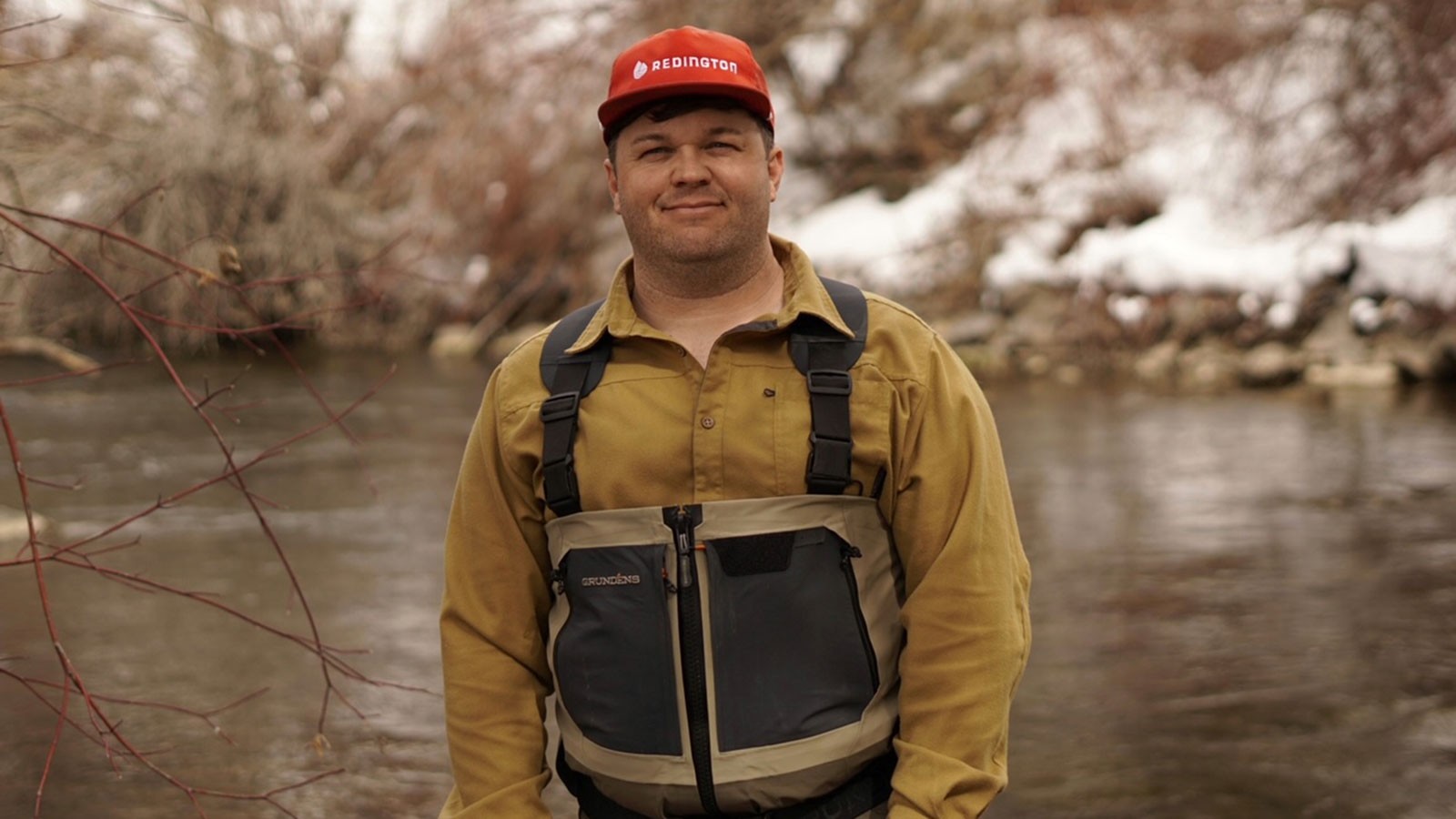Reeling it In: Graduate Tyler Coleman on Making an Education Matter
By Lael Gilbert |
QCNR graduate Tyler Coleman learned early on not to focus just on academics. Looking for experiences in the field, volunteering and getting out to shake people's hands were priority experiences for him. (Photo Credit: Anastasia Coleman)
The pursuit of a degree started as a sort of “side quest” for graduating senior Tyler Coleman. He had traveled to Utah with a friend for the fishing after his wife mentioned wanting to move west to be closer to public lands and mountains. His trip started in southern Utah and moved north to the Logan River to complete the Utah Cutthroat Slam. Coleman got hooked, so to speak, on Utah’s angler opportunities, and became determined to move to the state — but needed a reason (other than just for the fishing).
Signing up for a degree program at USU seemed as good a reason as any. It wasn’t until after he committed to the fisheries and aquatic sciences program in the Quinney College of Natural Resources that he realized just what a serendipitous circumstance he’d fallen into.
The program offered the expertise of people like Carl Saunders, who teaches a course on fish habitats and studies fish populations, aquatic communities and angler management; and fish ecologist Phaedra Budy, whose research relates directly to interactions between invasive brown trout and native species, a particular interest for Coleman. Understanding the nuance of fish ecology and seeing a more holistic picture allowed him to access knowledge and level up his outdoor pursuits in a way didn’t quite expect was possible.
Coleman said that one of the best parts of the experience was a class trip to snorkel the Logan River during a fisheries habitat assessment exercise taught by Saunders, he said.
“That was such a different perspective,” he said. “I knew I could catch fish, but to get down there and see them interacting with each other in the place where they live, that was really cool.”
Coleman spent most of his life in Arizona, working reel and rod in the East Valley urban fisheries and the high desert creeks of the Mogollon Rim and White Mountains. Committed to the sport his entire life, he grew to consider himself an advocate for native trout in his angler community. But this methodical, holistic approach to fisheries science offered a whole new perspective on river ecosystems.
“I didn’t even know until way after I should have known that Arizona has two native trout species,” he said. “One of them you literally can’t find anywhere else in the world.”
He was confused as to why something like this was not taught to him during his time as a student in the Arizona public schools.
Coleman ate up every fisheries class offered at USU. He also found that even the classes that weren’t necessarily centered on his particular interest also uncovered opportunities for career development.
“In almost every class I learned important skills — keeping a tight schedule, completing assignments with polish, tackling and completing tasks that you don’t necessarily want to do,” he said. “These are the kinds of skills you have to have for success after you leave school.”
Coleman was 34 years old when he started the degree program. It certainly hasn’t been a walk in the park, as a father of three kids and husband working to provide for his family, to jump into academic work. Most of his cohort are a decade or more younger than he is. Plus, he hadn’t sat through a math class for almost 20 years before arriving on campus.
As he grappled with the adjustment to a school environment, perspective offered by faculty mentor Peter Wilcock really hit home.
“He emphasized that our grades alone wouldn’t get us jobs after graduation,” Coleman said. “You can’t focus just on school work and expect to slip seamlessly into the professional world. It’s what you learn outside of school that really opens doors — your experience, learning in the field, volunteering — the most important part of this experience for me was getting out and shaking people’s hands.”
Coleman also found that with the right support, there can be plenty of positive aspects of being a non-traditional student.
“I came in with a lot of confidence about knowing what I wanted out of this experience,” he said. “I came here to get the career I wanted. I knew there wasn’t another option except to get to work and succeed.”
In the spirit of enriching his experience, Coleman worked in Budy’s Fish Ecology Research lab, completed several internships for Trout Unlimited and published a fisheries paper on his undergraduate research with the State of Utah. Now he is working as the Bear River watershed technician at Trout Unlimited and has continued to work remotely for Western Native Trout Initiative.
He also has worked as a fly-fishing guide and at flexible jobs doing home repair to stay afloat during his time at USU. Meanwhile, he volunteers as president of Backcountry Hunters and Anglers club, a public lands advocacy group on campus. He was recently awarded Senior of the Year for the Office of Academic Belonging and Learning Excellence through TRIO and has been accepted to the Masters of Ecological Restoration program in the Watershed Science Department at USU.
WRITER
Lael Gilbert
Public Relations Specialist
Quinney College of Natural Resources
435-797-8455
lael.gilbert@usu.edu
TOPICS
Student Success 302stories Land Management 123stories Animals 89stories Outdoor 79storiesComments and questions regarding this article may be directed to the contact person listed on this page.







